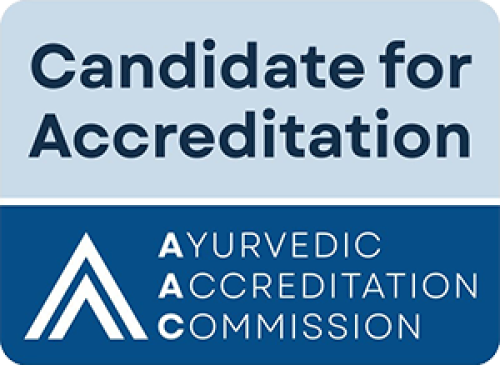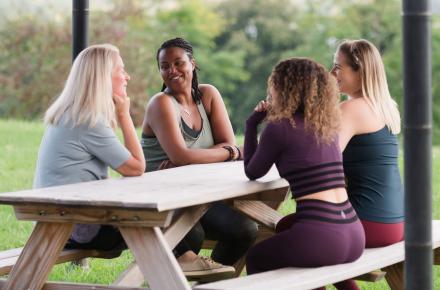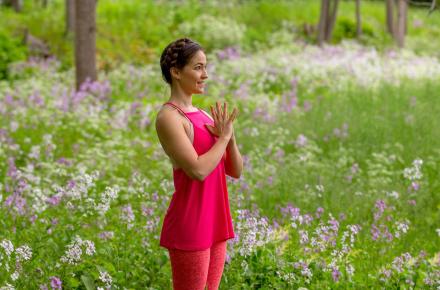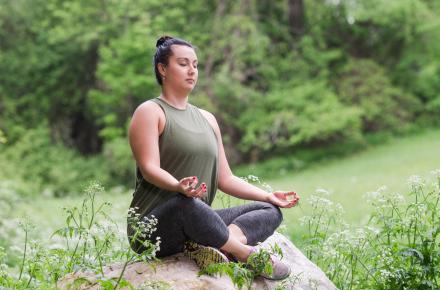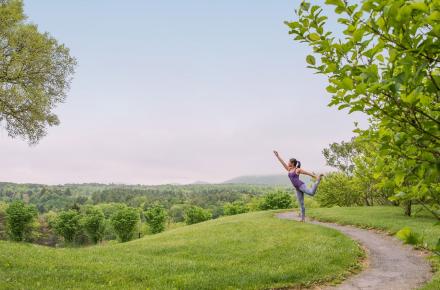Begin your Ayurveda journey.
For more than 20 years, the Kripalu School of Ayurveda has guided students in nurturing body, mind, senses, and spirit through transformative education. Our immersive 200-Hour Foundations of Ayurveda training invites you into the timeless wisdom of this holistic system for health, balance, and well-being.

Why Kripalu
Whether you’re seeking personal growth or preparing for advanced certification, this immersive program invites you into the heart of Ayurveda—its principles, philosophy, and practical tools for daily life. Rooted in classical texts and shaped for modern times, the curriculum bridges ancient tradition with contemporary relevance.
Guided by experienced faculty who live these teachings, you’ll learn through a blend of study, hands-on practice, and real-world application—supported by a community of fellow seekers walking this path alongside you.
FAQs
There are no prerequistes for this course.
We offer a limited number of scholarships for some of our Kripalu Schools Trainings. Once accepted to one of our Schools, you will receive a link to our scholarship eligibility form in your acceptance email if any are available.
Partial scholarships are awarded for select Schools trainings. On campus Schools scholarships cover 50% of the total cost of the training–total cost includes tuition and dorm housing. Hybrid Schools Scholarships cover 40% of the total cost of the training– total cost includes tuition and dorm housing. Online Schools Scholarships cover 30% of the total training tuition. If you choose housing other than a dormitory, you will be responsible for the full cost of housing.
Learn more here. Contact housing@kripalu.org with questions.
There is no required prereading. However, in addition to the complimentary manual provided, you'll need the following texts for the program:
- The Everyday Ayurveda Cookbook: A Seasonal Guide to Eating and Living Well, Kate O’Donnell
- The Everyday Ayurveda Guide to Self-Care, Kate O'Donnell
- Everyday Ayurveda Cooking for a Calm, Clear Mind, Kate O’Donnell
- Textbook of Ayurveda, Volume 1: Fundamental Principles of Ayurveda, Dr. Vasant Lad
- Textbook of Ayurveda, Volume 2: A Complete Guide to Clinical Assessment, Dr. Vasant Lad
- Astanga Hrdayam (3-volume set)
- Advanced Pulse Reading eCourse, Dr. John Douillard (Special student rate available after completing Foundations of Ayurveda)
- Pranayama for Restoring Vitality Audio Course, Larissa Carlson (Discount available after course starts)
Yes. These assignments consist of reading, integration sheets, studying for quizzes and exams, as well as regular experiential assignments that require written reflections. All homework is submitted electronically through our online learning platform, Canvas. KSA staff will review and provide feedback on all assignments.
Yes, there is a final written exam. Students must receive a 70% or higher to advance to Part 2: 450-Hour Clinical Training in Ayurveda.
Students receive a course manual.
100% attendance is required for all on-campus and online sessions. Please keep in mind that full participation is required. For online sessions, this also includes your camera being on with you present. Excused absences with required make-up assignments are granted on a case-by-case basis due to unexpected illness, travel delays, or family emergencies. If you have questions about the Schools attendance policy, please contact kripaluschools@kripalu.org.
Graduation takes place on the final day of your training and is only open to program participants.






